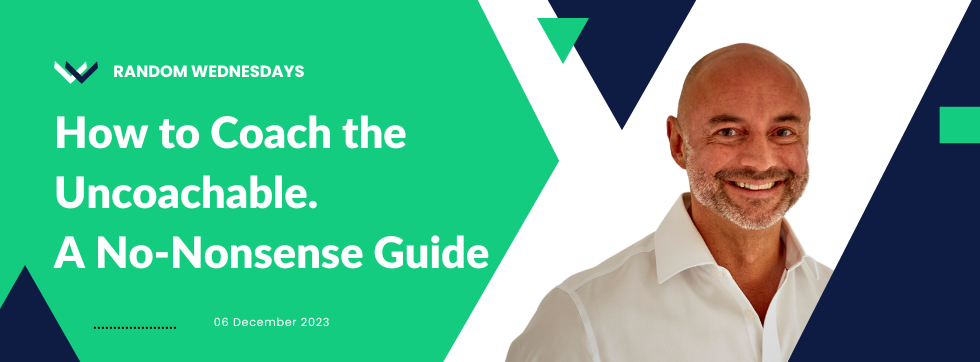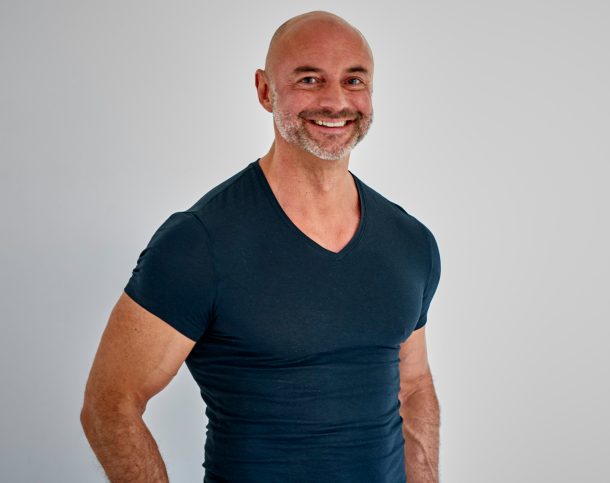Let’s cut to the chase.
We both know coaching can be a game changer.
But what happens when you encounter someone who seems uncoachable?
My coaching hero, the legendary Bill Campbell had an answer; he only coached the coachable.
He asked potential clients, “Are you coachable?” and followed it up with, “What do you want to get out of a coach?”
Bill’s strategy was direct, deceptively powerful, and brilliant for filtering clients.
But, not all clients were suited to Bill’s style and Bill wasn’t suited to all clients.
Today, I’m sharing actionable strategies you can use in your practice.
How to convert the most resistant potential clients into engaged, loyal advocates.
Together, let’s explore the transformative power of personalised coaching.
Showing how it can unlock potential in even the most challenging situations.
I don’t need a coach!
There’s a myriad of people who could benefit working with you but they’re hesitant to embrace change.
They’re confident, self-reliant, and a bit stubborn.
The key here isn’t to challenge their independence, but to enhance it.
Helping them understand coaching isn’t about handholding. It’s about providing a sounding board for improvement.
Here’s a lesson from elite sport.
Lessons from tennis legend Novak Djokovic
I always wondered how coaching is accepted in the world of sport but frowned on for personal growth.
Then I realised the simple truth both have in common.
It’s about being better today than yesterday.
No one exemplifies this more than 36-year-old Novak Djokovic. The world’s #1 tennis player.
Prominent coach Patric Mouratoglou believes Novak’s 2023 form eclipses his remarkable 2015 season.
“He’s evolved, his confidence evolved, his game has evolved. And his fitness levels haven’t dropped,” Mouratoglou observes.
Such evolution, might not have been as pronounced had Novak pursued his journey alone.
Novak’s example illuminates the balance between self-reliance and self-improvement.Recognising the world’s most successful individuals can elevate their capabilities, opens the doors to unprecedented opportunities for us all.
By embracing these ideals, coaching can be seen as the opposite of weakness or dependency. And more as a strategic tool for personal and professional advancement.
Challenging the ‘know-it-all’s’
Nobody knows everything, right?
Clients who think they have all the answers can be tough nuts to crack.
This is where you encourage them to refine their strategies. Reinforcing coaching isn’t a threat to their knowledge.
Time to provoke and expand people’s thinking and horizons.
Embracing the idea that our understanding and skills are always evolving.
This approach subtly shifts their mindset from knowing it all to a readiness to learn more.
Start with the concept of continuous learning. Then develop the idea of becoming a lifelong learner.
If you can crack this nut, the possibilities are endless.
The power of feedback and perspectives
Feedback’s tough to swallow, but it’s the secret sauce for growth.
I know some clients resist feedback or outside perspectives. Viewing them as threats to their autonomy and ego.
Your job is to show them the value of constructive observation.
Demonstrating the invaluable nature of useful feedback in their professional and personal development.
In my experience as a Success Coach for IPEC, I’ve faced this first-hand.
Our Director of Faculty Development regularly reviews our coaching sessions. A process that, admittedly, can feel uncomfortable at times.
Yet, this approach has been pivotal in my growth.
Embracing feedback aligns with my personal goal of continuous improvement.
It’s never a matter of right or wrong. But evolving and refining skills to better serve our clients.
More than money
Think coaching’s too expensive?
A better question might be, “why are you right for me and what value would we create that’s meaningful together?
Shifting from coaching as an expense to recognising it as an investment is pivotal.
I remember the mixed feelings I had when I first invested in personal development.
Programs included:
- Rockefeller Habits with Verne Harnish
- E-Myth Business Coaching
- Mentoring with Marc Winn
I felt scared at the financial outlay. Ready to do the work. Excited for the potential results.
Working with Bridgette on my coaching business stands out even more vividly.
This collaboration was more than business; it was a journey into the heart of what holds many back. Fear and anxiety, especially when so much feels at stake.
Through this, I learned first-hand the true value of coaching extends far beyond its cost.
Provided you’re ready to commit and engage in the process.
Uncovering the hidden benefits of coaching
Underestimating the benefits of coaching is common.
Many overlook coaching’s potential impact, thinking it unnecessary for their success.
But, coaching offers new perspectives. It uncovers different strategies to further enhance what’s already working well.
It’s not only overcoming challenges; it’s about continuous growth and staying ahead.
Helping you achieve more than you thought was possible.
Conclusion
Coaching the uncoachable isn’t about forcing change; it’s about guiding discovery.
It’s finding the balance. Respecting the client’s self-view while challenging them to see beyond it.
Remember, every client is different.
What works for one may not work for another.
The key is flexibility, patience, and the willingness to adapt your approach.
Coaching the uncoachable is challenging.
But it’s also where you’ll find some of your most rewarding work.
So, why not embrace the discomfort?
It’s a wonderful opportunity in disguise.


